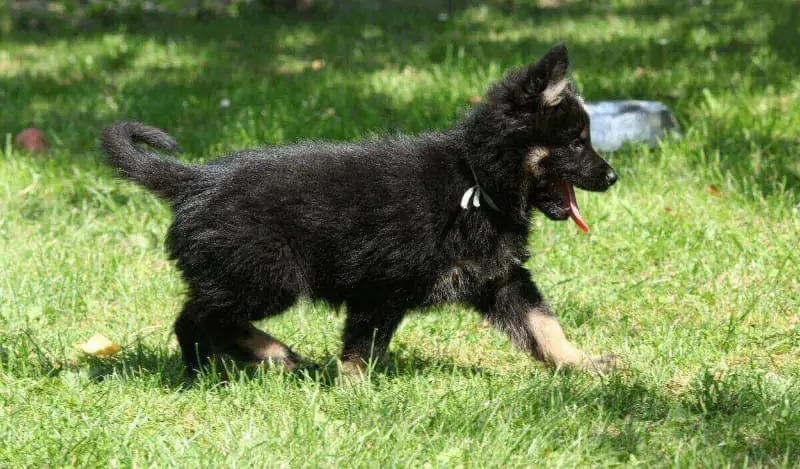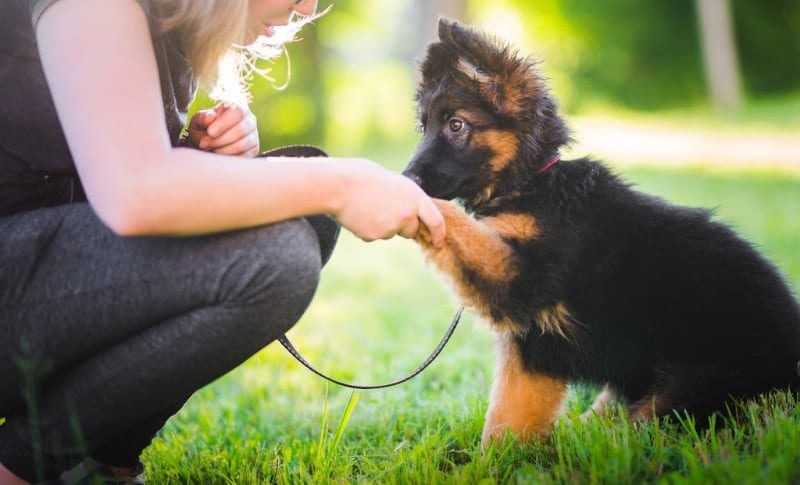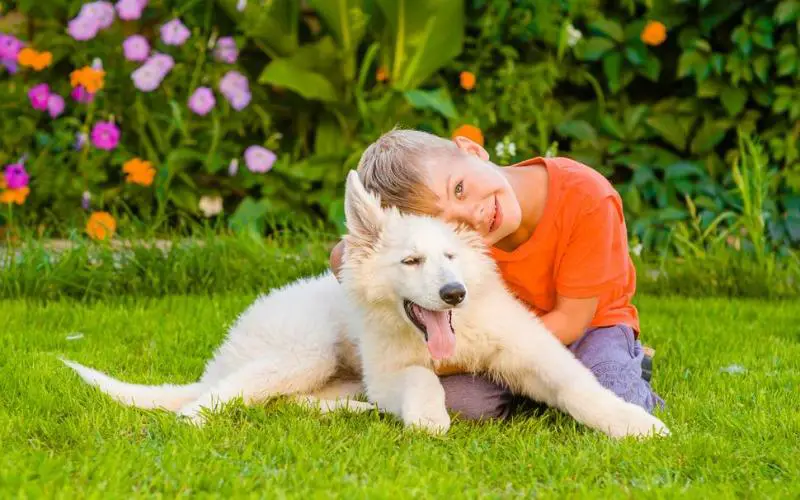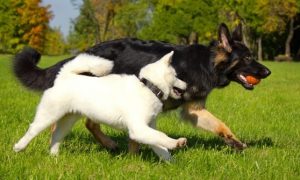Training and socialization are crucial to help shape the temperament and character of a young dog.
German Shepherd puppies are intelligent, independent dogs, and their puppy antics can become challenging to manage if ignored.
Puppies of all breeds benefit from being socialized at an early age.
Some breeds, like German Shepherds, are not instinctively the friendliest of breeds when it comes to other dogs or people outside of their immediate family pack.
It is best to start training and socializing a puppy immediately and as much as you possibly can during the first year.
If you have a protective breed like a German Shepherd, socialization is not negotiable. You need to do it.
If you don’t, you will have behavior issues as your dog matures and instinctively becomes more protective.
Socialization is about building confidence. Puppies need to be exposed to as many things as possible.
This includes all types of people, babies, kids, other dogs, other animals, new places, environmental situations, and environmental noises from a young age to ensure they become a well-adjusted and confident adult dog.
Keep new experiences and activities positive by setting your puppy up for success. Always monitor your pup’s interactions with people, kids, and other animals.
The German Shepherd is a smart breed that thrives when given a job to do.
Your German Shepherd puppy will love the challenge and mental stimulation from basic obedience training.
Remember to keep your training sessions short, fun, and positive. Focus on one training item per session with a very young puppy to avoid confusion and achieve success.
Reward lavishly with verbal praise, treats, and play for the behavior you want and a job well done.
German Shepherd puppies need vigorous daily exercise with early and ongoing training.
The time spent training and socializing your German Shepherd puppy will become the foundation of a lifelong bond you share with your dog.
























